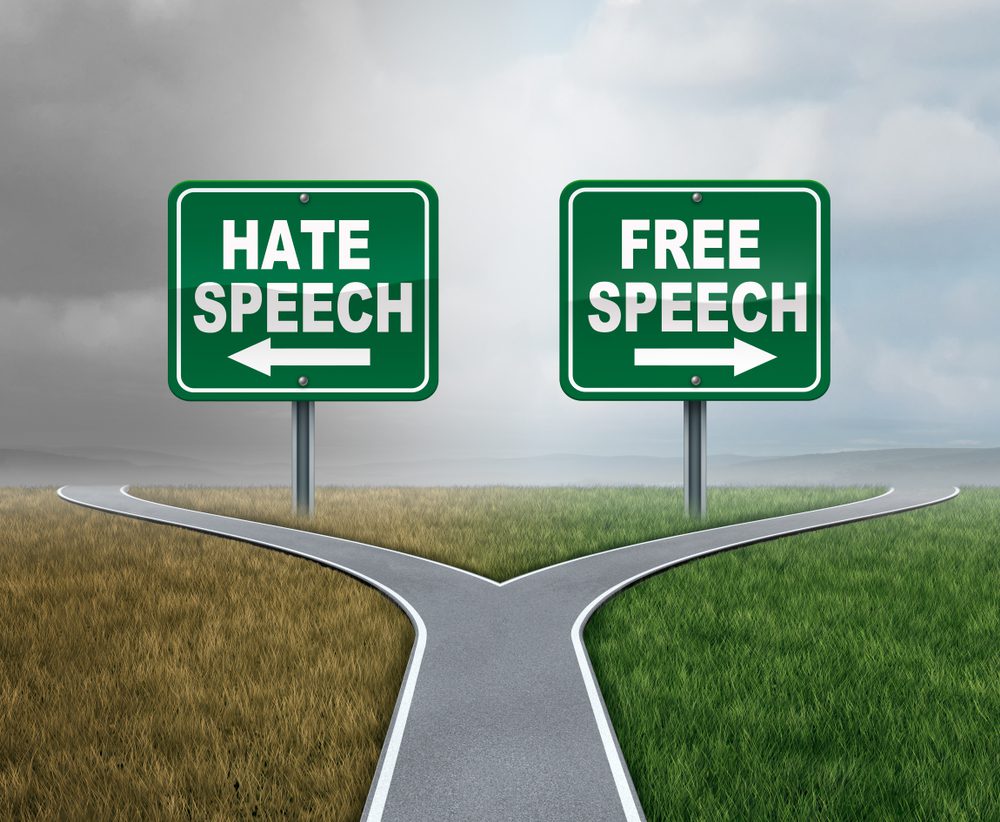
Barring amendment or rejection, a pernicious new bill restricting free speech is set to become enshrined in Irish law. Under it, mere possession of material deemed ‘hateful’ by the state could result in prison time for those accused, if the state suspects the material is intended for dissemination.
Last week, the legislation, designed to shield those with “protected characteristics” from ‘hate,’ passed through the Dáil Éireann, Ireland’s lower house. Currently, it is being debated by its upper house, the Seanad Éireann.
Only 14 of the Dáil’s 160 members voted ‘no’ to the bill before it headed to the Seanad.
Public awareness about the bill, known as the ‘Criminal Justice (Incitement to Violence or Hatred and Hate Offences) Bill 2022’ has been minimal. It’s been largely ignored by the Irish media.
That changed when a respected and well-known commentator in dissident Right circles, Keith Woods, whose account had been reinstated only one month ago, brought attention to the legislation by tweeting out a screenshot of one of its more alarming segments:
Ireland is about to pass one of the most radical hate speech bills yet. Merely possessing "hateful" material on your devices is enough to face prison time.
— Keith Woods (@KeithWoodsYT) April 28, 2023
Not only that, but the burden of proof is shifted to the accused, who is expected to prove they didn't intend to use the… https://t.co/DA41PEfvbt pic.twitter.com/UGKWzz66kM
Pointing to the fact that since the “burden of proof is shifted to the accused,” who are expected to prove they didn’t intend to propagate whatever ‘hateful’ material was in their possession, Woods deemed the clause to be so radical that “even the Trotskyist People Before Profit [a far-left Irish party] opposed it as a flagrant violation of civil liberties.”
Attempts were made to remove the incendiary section of the legislation, according to posts circulating on social media. A tweet by the advocacy group Free Speech Ireland noted that a proposed amendment from the People Before Profit party, which would include the UN Convention on Human Rights protections on Free Speech, had been defeated.
The same fate befell another amendment which asked “to excise the section allowing for the prosecution of individuals possessing offensive material without communicating it,” the tweet concluded.
Amendment from by @pb4p to include the UN Convention on Human Rights protections on Free Speech within the Hate Speech bill, has been defeated.
— Free Speech Ireland (@FreeSpeechIre) April 26, 2023
As well as one to excise the section allowing for the prosecution of individuals possessing offensive material without communicating it pic.twitter.com/3s7hFFZfnW
Wood’s tweet managed to catch Twitter owner Elon Musk’s attention, who retweeted the post to his over 137 million-strong audience, warning: “This is a massive attack against freedom of speech.”
This is a massive attack against freedom of speech
— Elon Musk (@elonmusk) April 29, 2023
A subsequent share followed from Canadian psychologist and author Jordan Peterson, who made a connection to his own country’s C-11 bill, which passed last Thursday.
Coming your way, Canadians: Bill C-11 is just the beginning. This is where Ireland already stands: https://t.co/pKQ2wX4Ik1
— Dr Jordan B Peterson (@jordanbpeterson) May 1, 2023
The Canadian law would subject social media platforms and streaming services such as Netflix, Crave, Spotify, Amazon Prime Video, Disney+, and YouTube to Canadian content requirements and regulations comparable to traditional broadcasters—a policy change that does not sit well with independent content creators on YouTube, who fear they would be hamstrung in terms of what kind of content they can produce as a result.
Donald Trump Jr. in turn felt equally obliged to respond, saying it was “insane what is happening in the ‘free world.’”
It’s insane what’s happening in the “free world” https://t.co/BXEJoR1ios
— Donald Trump Jr. (@DonaldJTrumpJr) April 30, 2023
Twitter’s influence as a platform wholly devoted to free speech was on full display shortly thereafter. In a follow-up tweet by Woods on Sunday evening, he said that opposition politicians had now come out to say they opposed the law, and that media were finally giving the matter some coverage, while #NoHateSpeechLaws was trending on Twitter.
Today is one month since my account was reinstated. Since then:
— Keith Woods (@KeithWoodsYT) May 1, 2023
– Over 10k new followers
– Tweet on Irish hate speech law reaching over 11 million people
– Replied to by Elon Musk
– Retweeted by Donald Trump jr. & Jordan Peterson
– Opposition politicians coming out to say they…
He concluded with, “if what we did here didn’t matter they wouldn’t put so much energy into trying to silence us.”
